Disney’s new live-action version of Snow White entered the cultural stage with all the makings of a modern fairy tale revival. It has a big budget, a familiar story, and a cast meant to resonate with today’s audiences. However, the box office numbers told a different story. With only $43 million earned domestically during its opening weekend against a production cost nearing $250 million, it didn’t just underperform, it became the focus of a very loud, very opinionated online backlash. Curiously, instead of interrogating the film’s creative or structural choices, a large contingent of voices, many from the murkier corners of the internet, chose to zero in on the lead actress, Rachel Zegler. It’s a reaction that’s not unfamiliar and one that speaks volumes about the spaces where outrage, gender politics, and digital tribalism collide.
Disclaimer: This article reflects the opinions of the writer.
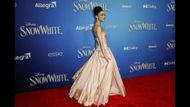
From rising star to unexpected target
Rachel Zegler didn’t just step into Hollywood, she made an entrance. In 2021, at just 20 years old, she took on the role of Maria in Steven Spielberg’s remake of West Side Story, and almost overnight, she was everywhere. Her performance was tender, magnetic, and powerful enough to earn her a Golden Globe. That role opened doors, not just to franchise films, but to a level of prestige that many actors spend years chasing. But the spotlight doesn’t always shine kindly. With that kind of visibility comes scrutiny, and for Zegler, it came fast and loud.
When she was announced as the new Snow White, the conversation quickly shifted. What could’ve been a celebration of her rising career turned into something else entirely. Instead of focusing on her acting chops or her growing list of achievements, much of the public discourse turned to who she was, her personality, her politics, and even her heritage. Some critiques were framed as concerns about staying “true” to the original character. But underneath that surface-level chatter, there was something deeper going on: discomfort with the idea of a young Latina woman stepping into the shoes of a character traditionally portrayed as white and doing it with confidence, without softening her voice.
Zegler has never been one to stay quiet. She spoke openly about what bothered her in outdated princess narratives. She voiced support for Palestine and was critical of former president Donald Trump. Her views didn’t feel calculated or staged; they felt honest, like the kind of things someone says when they understand the weight of their platform. Media outlets later reported that Disney, wary of backlash, may have brought in a social media consultant to oversee her posts. The company never confirmed this, but even the suggestion points to a familiar tension: the tightrope studios walk between embracing progressive talent and trying not to stir controversy.
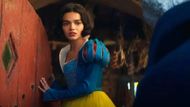
When the story changes, the audience doesn’t always follow
Marc Webb’s take on Snow White wasn’t a carbon copy of the 1937 classic, nor was it trying to be. The film leaned into fantasy elements, reshaped iconic roles, and offered a new version of the story’s lead. Gone were the seven dwarfs; in their place were magical creatures rendered with CGI. The romantic arc took a backseat. This Snow White was less about waiting for true love’s kiss and more about reclaiming personal agency. These changes were made with intention, and in theory, they should have aligned with modern sensibilities. But intention doesn’t always translate into impact. The CGI creatures lacked charm, the emotional arc felt shallow, and the film’s direction failed to inspire the kind of connection needed for a reboot to resonate. Audiences were left torn: some applauded the progressive approach, and others lamented the departure from what they considered timeless.
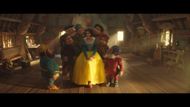
A tale older than Disney
The original Snow White story predates Disney by centuries, having been collected by the Brothers Grimm in the early 1800s. Their version was darker, filled with moral lessons and sharp metaphors about aging, envy, and transformation. Disney’s adaptation softened those edges and created the prototype for what we now recognize as the Disney Princess: beautiful, passive, and utterly devoted to the idea of love. By contrast, the 2025 film tried to reframe this legacy. Zegler’s Snow White was inquisitive, driven, and uninterested in prince-centric salvation. The Evil Queen, played by Gal Gadot, leaned into camp and glamor but drew mixed reactions, especially regarding her exaggerated delivery and over-stylized wardrobe. The film’s design elements seemed torn between fairytale opulence and modern aesthetic restraint, resulting in a visual inconsistency that undermined the film’s message.
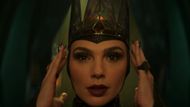
The loudest critics weren’t film buffs
The movie’s harshest critics didn’t come from within the film industry or established critical circles. Instead, the most vocal resistance emerged from incel and manosphere communities online. Incel, short for involuntary celibate, refers to self-identified men who often feel rejected by women and excluded by broader society. These communities build their identities around frustration and resentment, often directing that rage toward any woman who appears confident, independent, or, heaven forbid, unapologetically vocal.
To them, Zegler’s Snow White wasn’t just a character. She was a symbol. A young woman of color who wasn’t afraid to challenge expectations. Someone who dared to suggest that women don’t need saving. This directly challenged their narrative of the ideal woman: submissive, silent, grateful. Online, terms like Stacy and femoid circulated, with many calling for boycotts. According to research like that found in The Dark Web Adolescence, this language isn’t just coded slang. It’s a deliberate tool to dehumanize and radicalize, especially among impressionable boys.

Men they idolize, women they fear
If incels detest women like Zegler, they often revere fictional men who embody stoicism and dominance. Tyler Durden from Fight Club and Thomas Shelby from Peaky Blinders are the men they wish to become. As described in The Rise of the Sigma Male Fantasy, these characters are often framed as untouchable, emotionally unavailable, and entirely self-reliant. They don’t beg for validation or attention. They control every room they walk into. When a film comes along and presents a woman who disrupts that fantasy, especially one who doesn’t need, desire, or respond to the male gaze, it’s perceived not just as art but as rebellion.
Coordinated blame and the cost of speaking up
Once the film opened to lukewarm reviews and soft sales, the tide of criticism swelled. But few focused on the film’s structural or narrative missteps. Instead, a large portion of the outrage turned toward Rachel Zegler herself. Jonah Platt, son of the film’s producer, publicly criticized her, calling her narcissistic and immature. His comments went viral and fueled further attacks. While Zegler faced significant backlash, other contributors to the film’s reception, such as direction, script, and digital execution, were discussed less prominently in public debate.
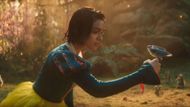
Pattern recognition
There’s a blueprint here. We’ve seen it before. A young woman rises quickly, uses her platform to speak honestly, challenges outdated norms, and suddenly becomes the villain of the story. What’s frustrating is how predictable it all feels. Disney’s Snow White had several hurdles: franchise fatigue, marketing that didn’t quite land, and an execution that felt uneven. But none of those things created the noise that Zegler’s personal politics did. The outrage wasn’t about the film’s merits, it was about control. Or rather, the loss of it. When a woman refuses to apologize for her voice, it becomes easier to frame her as the problem than to acknowledge a shifting cultural landscape.
No kiss required
Whether or not Disney’s Snow White finds a second life through streaming or international audiences remains to be seen. What’s clear is that the conversation around it says more about us than it does about the film. Rachel Zegler stepped into a role with courage, awareness, and conviction. And for that, she was met with backlash from people unwilling to let go of old narratives. But here’s the thing about fairy tales: they evolve. The ones that last aren’t those that comfort us with repetition, but the ones that dare to show us something new. This time, the princess isn’t asleep. She doesn’t wait for a kiss. She walks into the forest by herself, and that terrifies them.
Love movies? Try our Box Office Game and Movie Grid Game to test your film knowledge and have some fun!
